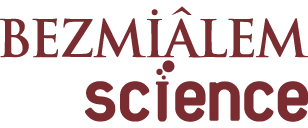COVID-19; Experiences and Future Prospects
Part II
In the third part of our attempt to publish the efforts of Turkish clinicians and scientists in fight against the SARS-CoV-2 pandemic, here we publish studies collected from various fields of the health sciences as the second special issue with the topic of “Experiences and Future Prospects” and the third special issue about COVID-19.
The most important topic in the COVID-19 treatment; “COVID-19 and Influenza Coexistence” is being discussed by Uslu Ersoz et al. in our first article. This article is followed by investigations on the very important factors in diagnosis of this disease such as “Investigation of C-reactive Protein and D-dimer Findings in Patients with COVID-19” and “Microbiological Diagnosis of COVID-19” which, are being discussed by Yazar et al. and Sumbul et al. respectively.
In this special issue, we also tried to cover the impact of the pandemic on healthcare professionals. Arslan et al. studied and reported the “Evaluation of Perceived Stress Levels of Radiology Workers Regarding COVID-19 Outbreak” while, a survey study is reported by Korkusuz et al. dealing with “The Importance of Healthcare Workers to Comply with Infection Prevention and Control Instructions During COVID-19 Outbreak”. Similarly, a descriptive study is reported by Guner et al. emphasizing the “Health Care Professionals’ Views on Healthcare Provision During the COVID-19 Pandemic”.
The risk factors in COVID-19 virus infection are being discussed by several authors. High body mass and its impact on the infection is discussed in two different perspectives by Bolukcu et al. and Keskin et al. with the topics “Investigation the Relationship Between Body Mass Index and Mortality in COVID-19 Patients” and “Is High Body Mass Index a Risk Factor for COVID-19?” respectively. Another risk factor, ocular contamination is discussed by Ekinci and Ozdemir in the article entitled “Coronavirus (COVID-19) and its Relationship with Ocular Surface”.
Prof. Kirpinar shared his very precious experiences during the pandemic with the readers in the article entitled “COVID-19 Pandemic: Stress and Psychiatric Disorder”.
Treatment of pregnant and lactating mothers, which is the most delicate issue in the development of any kind of treatment, is discussed in two articles. These are “Is Online Pregnant School Training Effective in Reducing the Anxiety of Pregnant Women and Their Partners During the COVID-19 Pandemic?” by Merih et al. and “Evaluation of Updated Therapeutic Options For COVID-19 in Pregnancy and Lactation” by Dr. Tirmikcioglu.
Technological Innovations in New Type Coronavirus and Health System” is discussed by Guner et al and “Precautions Prior to the Treatment in Oral and Maxillofacial Surgery in the Reopening Period during COVID-19 Pandemic” is described widely by Doganay and Dolanmaz. Finally, two case reports are presented by Hamidi et al. and Yenigun et al., indicating “Clinical Course of COVID-19 in a Thalassemia Major Patient Who Underwent Haematopoietic Stem Cell Transplantation” and “Nursing Care of Patient with COVID-19” respectively.
As guest editor and on behalf of all editors of Bezmialem Science journal, I would like to thank to our sponsors for their financial and moral support in publishing this special issue.
Special thanks to the Gilead Sciences, Inc. for their very generous donation to our special issue. Here I would like to include the sentences of Mr. Dr. Tahsin Gokcem Ozcagli, the Medical Director of Gilead Turkey;
“For 33 years, Gilead has focused on developing innovative treatments for invasive fungal infections, HIV/AIDS, Hepatitis B, Hepatitis C, hematology, inflammation, and oncology, supporting efforts to transform these diseases from deadly diseases into manageable diseases.
Gilead, headquartered in Foster City, California, operates in more than 38 countries around the world. Since 2007, Gilead Turkey is also dedicated to operating invasive fungal infections.
The story of our treatment for invasive fungal infections began in 1983 with the discovery of AmBisome®. Amphotericin B was one of the few treatment options available for the treatment of invasive fungal infections in the 1980s and has been used since the 1950s. However, these older formulas were associated with severe renal toxicities and infusion reactions. Upon this, the inspiring Research Scientist, Professor Jill Adler-Moore, began working in 1983 to develop an Amphotericin B formulation with a tolerable side effect profile. Its aim was to find a long-term solution to invasive fungal infections. His bold step and transformational discovery marked the way in the treatment of invasive fungal infections. Thus, patients at risk of contracting a life-threatening fungal infection, resulting in less toxicity; He started to benefit from this treatment, which has broad spectrum activity against most fungal pathogens, including those that cause rare and difficult to treat infections. Our product, which is licensed in 63 countries around the world, has been used in the treatment of nearly 2 million patients since its launch.
There are different treatment options that are used by physicians both in the world and in our country in the treatment of invasive fungal infections. When we look at AmBisome®, in 2010, it was recommended as the preferred first-line treatment by the World Health Organization’s Expert Committee for visceral leishmaniasis in the Indian subcontinent and visceral leishmaniasis in HIV-co-infected patients in East Africa. It remained on the Essential Medicines List for more than 10 years. We are extremely proud to see AmBisome® stand shoulder to shoulder with today’s most important and life-changing treatments.
We are extremely proud of all the achievements we have achieved with AmBisome® over the past 30 years. Approximately 2 million people have been treated with AmBisome® to date. It allowed mothers, fathers, children, siblings to reunite with their families who had a life-threatening invasive fungal infection. We now have footprints on almost every continent. This makes us very proud. AmBisome® is currently available in 63 countries around the world, and it is anticipated that it will be approved elsewhere in the coming years. Foreseeing the needs of physicians and patients in this regard, Gilead invested more than $ 500 million in La Verne facilities in an area of 32,500 square meters in California in order to increase production volumes between 2015-2019. With this new production facility, whose approvals have been recently completed in many countries, we will continue to benefit patients for decades to come.”
Special thanks to UPTODATE, the only clinical decision support resource associated with improved outcomes, for their very kind sponsorship to our special issue. Here it is my honor as guest editor to share the very precious message of “Wolters Kluwer” with dear readers;
Support from Wolters Kluwer in the global fight against COVID-19
We are grateful to all healthcare providers for coming forward and fighting on the front lines during the COVID-19 pandemic. Like you, our top priority has been to protect the health of our communities and equip healthcare professionals with the latest evidence and expert advice on the point of care.
We made our COVID-19 content available for free and gained access to clinical topics, drug monographs and patient education materials from our globally trusted resources UpToDate, Lexicomp and Emmi.
In the first six months of the pandemic, our editorial team developed 50 topics dedicated to COVID-19. During this time, the content was viewed over 11.4 million times by clinicians around the world looking for quick answers in a time-critical situation.
https://www.wolterskluwer.com/en/know/coronavirus-resources
We would like to thank to the WILEY Publications, one of the largest and most authoritative collections of online journals, books, and research resources, covering life, health, social, and physical sciences for their very kind donation to our special issue.
Special thanks to ABDİİBRAHİM the leading Turkish pharmaceutical company, which work passionately to heal the lives for being our supporter in publication of this special issue.
One more thanks to ELSEVIER PUBLICATIONS, the dedicated supporters of the lifelong learning for both students and practitioners for their very precious sponsorship to this special issue.
And the last but not least thanks to EBSCO INFORMATION SERVICES the leading provider of research databases, e-journals, magazine subscriptions, e-books and discovery service to libraries of all kinds for being a very important sponsor of this special issue.
During the publication of our three special issues in the fight with SARS-CoV-2 pandemic, many of our professors and health professionals in Bezmialem Vakif University got infected by COVID-19 virus. It will be our honor to dedicate these special issues to those devoted individuals. These heroes will remain in mind and documents of history as unforgettable figures.
Guest Editor
Assistant Prof. Dr. Fatemeh Bahadori
Bezmialem Vakif University
Faculty of Pharmacy
Department of Pharmaceutical Biotechnology



